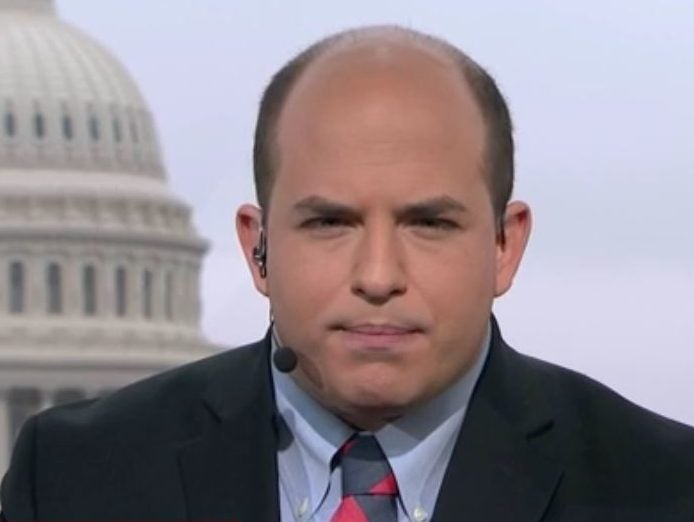
CNN’s senior media correspondent has said the rise of fake news has been a “wake-up call” to how “complicated” and “confusing” the media is for news consumers in the internet age.
Brian Stelter also warned there is a broad effort to “delegitimise” the media in the United States, being carried out by Donald Trump, his aides and other politicians, by calling the media “dishonest”, adding: “That is a danger to journalism that has not been seen in a long time.”
Stelter, who hosts media show Reliable Sources for the American broadcaster, was among the first journalists to cover the rise of fake news during the presidential election campaign in the US.
He made his comments via video link last night, at an event on “Truth, trust and the news media” organised by the London Press Club in partnership with the London School of Economics (LSE) and media think tank Polis.
He said: “The current hysteria about fake news has been helpful because it has forced people to confront how confusing it is to be on Facebook and Twitter and to be seeing all these stories and not know what’s true and what’s false. Solving it is a hard problem but in the last few months, thanks to this term fake news, there’s a lot more awareness.
“Of course the term has also been exploited, it’s been misused, Donald Trump is misusing it almost every day, it is probably time to retire the term fake news and refer to hoaxes and lies and propaganda, but I’m glad there has been this wake-up call recently.”
But he also warned that the new US president appears intent on undermining the news media.
“Some of it is whining. When Donald Trump sees something on cable news that he doesn’t like, he does complain about it on Twitter and that’s not strategic, that’s no different from me yelling at the TV at night, that’s no different than me shooting off a tweet at somebody I’m angry at.
“There is something underneath this though, that is on purpose, to delegitimise the media. Not just by Donald Trump but by his aides and other politicians as well.
“It’s not every tweet that it’s on purpose, but the broader effort to say the media is dishonest, you cannot believe them, you can only believe me, that is strategic and that is a danger to journalism that has not been seen in a long time.
“You can go back to Nixon in some ways in the US, but its different now because of the internet. I think journalists are rising to the occasion though. The New York Times has put the word lie in the headline for the last two days, we are seeing a lot of news outlets figure out how to be louder with the truth in order to challenge all the falsehoods we are hearing.”
Asked whether journalists need to start making bold decisions on not covering Trump’s twitter messages, he said: “Ignoring is not an option because for a lot of people, Trump’s tweets are news.
“For a lot of people, seeing a tweet is the same as seeing a news story and they take his word for it so we have to fact check but also have our own agenda and not be driven entirely by Trump’s agenda. This is incredibly difficult and even when we try we don’t always get it right. But what I see right now is a very bold and inspiring time for journalism in the US.
“The challenge is how to reach all the consumers. We can write very clear stories very accurately, very forcefully, but if they’re not reaching the audience they are meant to reach, then all of it is wasted. The challenge now is to figure out how to engage with various parts of the county who may not want to hear these uncomfortable truths.”
The London Press Club is holding a second event on 13 February, titled: “Are Journalism and Press Freedom under threat?”. It will be hosted by Guardian media correspondent Roy Greenslade.
Email pged@pressgazette.co.uk to point out mistakes, provide story tips or send in a letter for publication on our "Letters Page" blog
